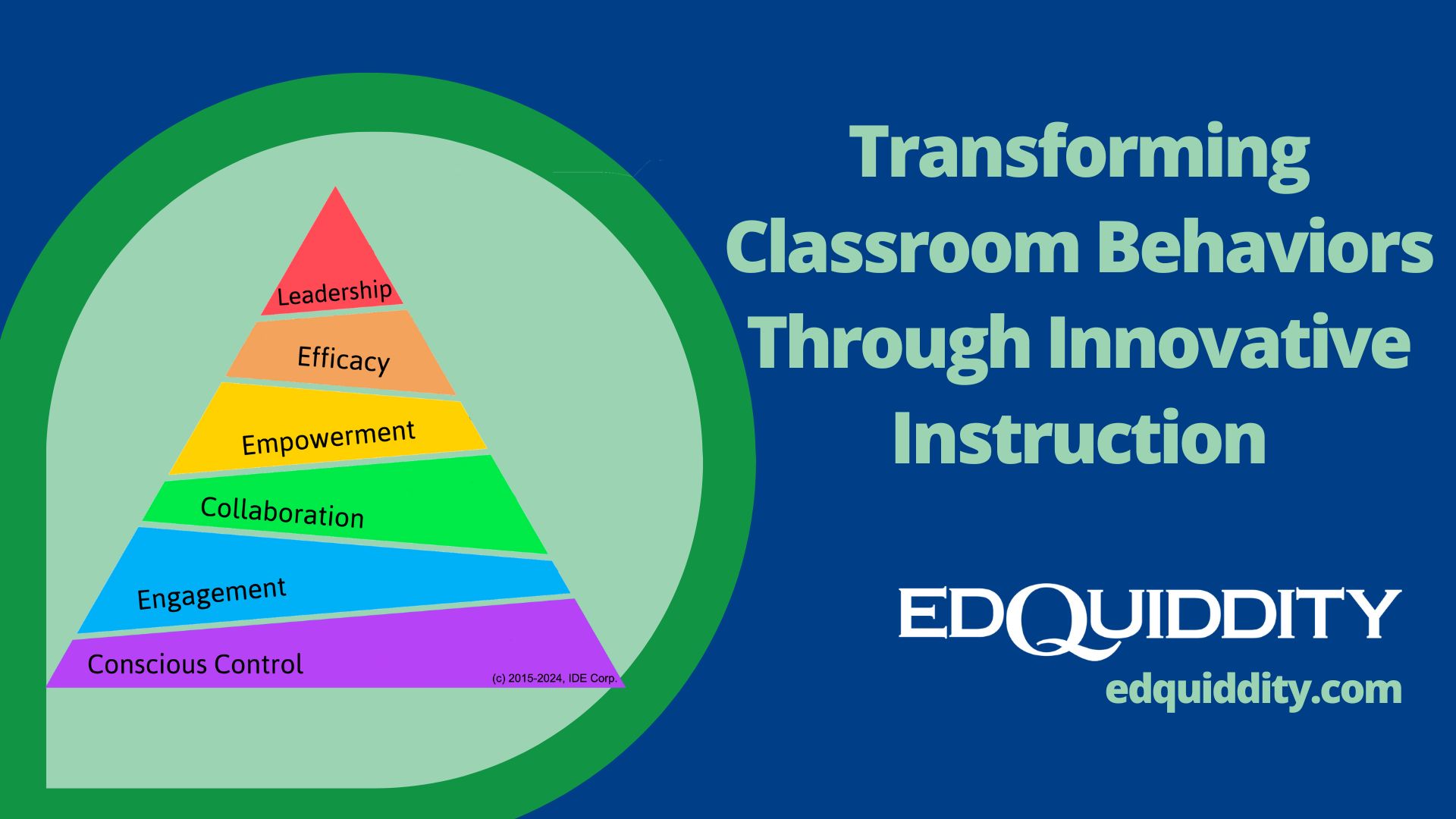Managing Classroom Behaviors Through Executive Function Development
The president of our company, Dr. Nancy Sulla, states: “Academic achievement depends on executive function. Mental and emotional wellness depend upon executive function. Social skills depend upon executive function. And exhibiting appropriate behavior depends upon executive function. So, tackle behavior at the foundational level of executive function.” The key to school success is, indeed, executive function.
Managing diverse behaviors in the classroom can be one of the most challenging aspects of teaching. As educators, you’re constantly navigating a variety of student needs, attitudes, and abilities. Traditional classroom management strategies can sometimes feel like a game of whack-a-mole, addressing behaviors as they arise without getting to the root cause. But what if we looked at your classroom instruction through a different lens — one that focuses on brain development and fostering executive function skills? By rethinking your approach, you can empower your students to regulate their own behavior, leading to a more harmonious and productive learning environment.
Understanding Executive Function: The Key to Better Student Behavior
Executive function refers to a set of cognitive skills that are crucial for managing thoughts, actions, and emotions to achieve goals. Dr. Nancy Sulla categorizes these into 6 key life skills: conscious control, engagement, collaboration, empowerment, efficacy, and leadership. In the classroom, executive function is what allows students to follow instructions, stay focused, follow multiple steps, persist in a task, store and manipulate prior information, and think before acting. When these skills are underdeveloped, students may struggle with impulsivity, forgetfulness, and difficulty transitioning between tasks — behaviors that can disrupt learning.
Check out the tool below, which can be found as one of the many resources provided in our executive function PLE to help students with task persistence. (Access this resource at https://www.myqportal.com/Share.asp?ID=1535 — this is the free portion of a product, so just click through to see the resource. Download a PDF or Word version on the right; the link to the Spanish version is there as well.)

You as the teacher can play an important role in fostering executive function by integrating specific strategies into your instruction. Executive function doesn’t need to be an additional thing you have to teach, or a separate time of the day; rather, it should be woven in throughout your everyday instruction. For example, using game play to build up students’ working memory, using a graphic organizer to store and manipulate information, and breaking tasks into smaller steps helps students with planning and time management. Encouraging self-reflection after students complete assignments can enhance metacognition, a component of executive function. Additionally, providing opportunities for students to practice decision making in a low-stakes environment strengthens their ability to think critically and make informed choices. By embedding these practices into everyday lessons, you can help your students build the brain-based skills necessary for success both in and out of the classroom.
Professional Learning to Foster Executive Function in Schools
We at EdQuiddity offer an incredible resource to equip your teachers with the tools they need to build their students’ brains and develop their executive function skills. Here is some key information about our online, on-demand Professional Learning Experiences (PLEs):
- A PLE is not a course; it is a resource!
- Each topic provides approximately 12 online content modules, each with strategies teachers can implement.
- Each PLE includes various modes of learning, such as videos, texts, examples, downloadable resources, insights, and more!
- Once enrolled, the educator has full access to the content for two years.
- It’s perfect for driving in-house PD, PLCs, faculty meetings, etc.
- A PLE only costs $99 per educator, when enrolling all teachers and administrators in a school/district.
Support Your Educators Today
Ready to transform the way behaviors are managed in your classrooms? Contact us today to provide your school or district with the resources needed to foster executive function development in your students for $99 per person for 2 years of engagement. Let’s work together to build stronger, more self-regulated learners — one classroom at a time.


 In this course, participants will leverage choice and technology to provide students with the ultimate differentiated learning environment. They will develop differentiated digital activity lists rooted in rigorous instruction that offer multiple ways to learn and apply content. Participants will explore autonomy, purpose, and mastery as motivators in all learning environments. They will design differentiated activity lists to put students in charge of their own learning, creating a structure that allows students to make decisions within a structured framework. Making informed decisions is an essential life skill that teachers can support with intentional classroom practices.
In this course, participants will leverage choice and technology to provide students with the ultimate differentiated learning environment. They will develop differentiated digital activity lists rooted in rigorous instruction that offer multiple ways to learn and apply content. Participants will explore autonomy, purpose, and mastery as motivators in all learning environments. They will design differentiated activity lists to put students in charge of their own learning, creating a structure that allows students to make decisions within a structured framework. Making informed decisions is an essential life skill that teachers can support with intentional classroom practices. Participants in this course will use Reinventing the Classroom Experience by Dr. Nancy Sulla as a resource. The assigned book must be
Participants in this course will use Reinventing the Classroom Experience by Dr. Nancy Sulla as a resource. The assigned book must be